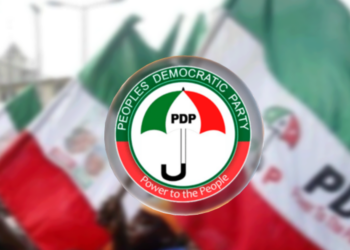Politics
PDP clarifies position on coalition moves for 2027 amid internal rifts

In a bid to quell growing speculations and internal discontent, the Peoples Democratic Party (PDP) has clarified its stance on coalition talks ahead of the 2027 presidential election.
The clarification comes in the wake of controversial resolutions passed during a PDP Governors’ Forum meeting held in Ibadan earlier this week, which appeared to reject any form of political alliance aimed at unseating President Bola Tinubu.
The meeting, convened by PDP governors from across the country, concluded with a communiqué stating categorically that the party “will not join any coalition or merger.” The declaration triggered a wave of criticism, particularly from loyalists of former Vice President Atiku Abubakar, who have been pushing for a broad opposition alliance to challenge the ruling All Progressives Congress (APC) at the next general elections.
Political observers viewed the governors’ statement as a potential setback to efforts aimed at consolidating opposition forces, with some interpreting it as an attempt to sideline Atiku’s influence within the party’s broader 2027 game plan.
In response to the controversy, Comrade Timothy Osadolor, the PDP’s Deputy National Youth Leader and a member of its National Working Committee, moved to temper concerns.
READ ALSO: PDP appoints caretaker committees for Bayelsa, Edo
Speaking to reporters on Tuesday, Osadolor clarified that the party was not opposed to forming strategic coalitions but insists any alliance must respect the PDP’s historical stature and leadership role in Nigeria’s political landscape.
“Let it be clear: the PDP is not closing the door on political coalitions,” Osadolor said. “What we are saying — and we say this with all sense of responsibility — is that we are the biggest opposition party in Nigeria and will not compromise our identity in the name of coalition-building.”
He added, “The PDP name, its structures, and its legacy must remain intact. We will not allow our brand to be diluted or reshaped into something like a PDSP or PDRC. Any talks about alliance must recognize our superior position.”
Osadolor’s remarks reflect a deeper anxiety within the party about preserving its relevance amid Nigeria’s shifting political terrain. With the APC still firmly in control and new political movements emerging, questions around unity, identity, and leadership are becoming increasingly urgent for Nigeria’s oldest surviving political party.
Join the conversation
Support Ripples Nigeria, hold up solutions journalism
Balanced, fearless journalism driven by data comes at huge financial costs.
As a media platform, we hold leadership accountable and will not trade the right to press freedom and free speech for a piece of cake.
If you like what we do, and are ready to uphold solutions journalism, kindly donate to the Ripples Nigeria cause.
Your support would help to ensure that citizens and institutions continue to have free access to credible and reliable information for societal development.




























